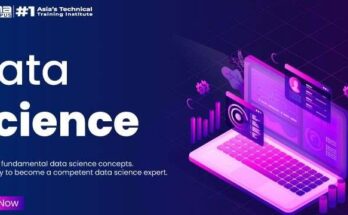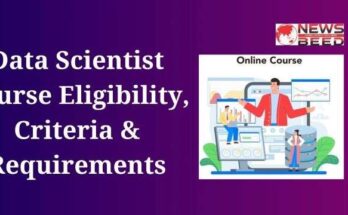To begin with, Data Science refers to the process of studying the data to extract meaningful insights for business. In addition, this practice consists of combining various principles and practices from the fields of mathematics, statistics, artificial intelligence, and computer engineering. It is a very trending skill and learning it can offer you numerous high-paying job opportunities all across the world. Above all, this technology is useful for various applications which are as follows:
- Predictive analytics
- Machine learning
- Data visualization
- Recommendation systems
- Fraud detection
- Sentiment analysis
- Decision-making
What Will I Learn in the Data Science Course?
Enrolling in the Data Science course will provide you with the entire toolbox you require to become a skilled and proficient data scientist. Along with this, enrollment in this course is a great way to improve the weightage in your resume with Data Scientist skills. In addition, you will learn about statistical analysis along with Python programming with NumPy, pandas, matplotlib, and Seaborn. Along with this, this Data Science Course training will provide you with the necessary skills you require to impress employees. You will learn how to pre-process the data and will understand the mathematics behind Machine Learning. Apart from these, given below are some significant topics you will learn in the Data Scientist Course.
- How to code in Python and use it for necessary statistical analysis.
- You will be able to perform linear and logistic regressions in Python
- You will learn how to carry out the cluster and factor analysis
- Should know how to use the Machine Learning algorithms in Python.
- Will be able to use your skills for real-life business cases.
- Should be able to use the Deep Learning frameworks.
- The course will also teach you how to use deep neural networks.
- You will be able to improve the machine-learning algorithms
- It will help you improve performance and apply knowledge in real-life situations
How to Become a Data Scientist?
Data Science is a great career and learning it can be highly beneficial for you. In addition, Data Scientist jobs are highly in demand and learning this skill can offer you great salary opportunities. Along with this, data science facilitates data analysis, mining, and programming, and helps in transforming huge data. Here are some significant steps you need to follow to become a skilled & proficient data scientist.
Pursue an undergraduate data science degree- The first step is to get an undergraduate degree in any relevant field such as mathematics, statistics, business, and engineering. Many colleges also offer a specific degree in data science which covers data-oriented programming languages, statistical software, database software, Etc.
Enhance your Data Scientist skills- Getting a graduation degree will surely help you gain some necessary skills for the data science domain. However, you need to have various other advanced-level technical and transferable skills. Technical skills necessary for data analysis include programming languages, math’s, data analysis, virtualization, web scraping, data mining, warehousing, Etc.
Get yourself Data Science Certified- Having a Data Science Certification can be highly beneficial for demonstrating your skills and knowledge to potential employers. In addition, these credentials validate your expertise and ensure that your specialization aligns with your professional goals. Above all, certifications help you find a better job with a good salary package.
You May Also Read:
What is Digital Marketing in Hindi
SEO Interview Questions and Answers
What is Affiliate Marketing Meaning
Earn a master’s degree in data science- Gaining a master’s degree is not necessary in this field but it can surely be beneficial in higher-level job positions. Furthermore, a master’s program in Data Scientist covers necessary topics such as machine learning, data mining, statistical analysis, and data visualization. Above all, it improves your programming skills and offers high-level jobs.
Learn data science tools- Data scientists use various tools as per their area of focus, and the industry in which they work. Some common types of data science tools are Web scraping tools, Machine learning tools, Data visualization tools, Business intelligence tools, Instant metrics tools, Insights tools and many more.
Start your data science career- Now the last thing you need to do is strategically apply for job opportunities. Define your career objective, the data science role you are interested in, and the industry you prefer. Polish your resume and build a strong online presence on job platforms. Furthermore, leverage your professional & personal network and prepare yourself for the job interviews.
Skills Requires to Become a Data Scientist
The primary job responsibility of a data scientist is to identify valuable data sources and automate collection processes. In addition, these professionals have to manage the preprocessing of structured and unstructured data. They even have to analyze large data amounts and find hidden insights & patterns in them. Above all, they are even responsible for building predictive models and machine-learning algorithms. These job responsibilities require having various advanced-level skill sets. Along with skills, having a Data Science Certification is a plus point for starting a career in this domain. Below are some necessary technical skills you should have to start your career as a data scientist.
- Statistical analysis and computing
- Machine Learning
- Deep Learning
- Processing large data sets
- Data Visualization
- Data Wrangling
- Mathematics
- Programming
- Statistics
- Big Data
Conclusion
Data Science consists of combining various principles and practices from the fields of mathematics, statistics, artificial intelligence, and computer engineering. It is a very trending skill and learning it can offer you numerous high-paying job opportunities all across the world. Data Scientist Course training will provide you with the necessary skills you require to impress employees. Data Science is a great career and learning it can be highly beneficial for you. TheData science jobs are highly in demand and learning this skill can offer you great salary opportunities. Best Data Science Certification validate your expertise and ensure that your specialization aligns with your professional goals. They will help you find better job with a good salary package. In conclusion, Data scientists use various tools as per their area of focus, and the industry in which they work.
FAQs:
Q1: What is a Data Science Roadmap?
A: A Data Science Roadmap is a strategic plan outlining the steps and skills required to become proficient in data science. It typically includes learning paths, key concepts, and recommended tools to navigate the field.
Q2: What are the essential skills for a data scientist?
A: Essential skills for a data scientist include programming (e.g., Python, R), statistics, machine learning, data visualization, data manipulation, and domain-specific knowledge. Soft skills like communication and problem-solving are also crucial.
Q3: How do I start learning data science as a beginner?
A: Begin with foundational skills in programming and statistics. Learn a programming language like Python, understand basic statistics, and gradually delve into more advanced topics such as machine learning and data manipulation. Online courses and tutorials can be valuable resources.
Q4: What programming languages are important for Data Scientist?
A: Python and R are widely used in data science. Python, in particular, has become the de facto language due to its extensive libraries (e.g., NumPy, Pandas, scikit-learn) and community support.
Q5: What is the role of statistics in Data Scientist?
A: Statistics is fundamental in data science for making inferences, drawing conclusions, and validating results. It helps in understanding the underlying patterns in data and is crucial for designing and evaluating machine learning models.
Q6: How important is domain knowledge in data science?
A: Domain knowledge is highly valuable. Understanding the context of the data you are working with enhances the ability to interpret results and create more meaningful models. It also aids in effective communication with stakeholders.
Q7: What tools are commonly used in data science projects?
A: Common tools include Jupyter Notebooks for interactive coding, data visualization libraries like Matplotlib and Seaborn, and machine learning frameworks such as TensorFlow and scikit-learn.
Q8: Is a formal education in data science necessary?
A: While a formal education can be beneficial, it is not strictly necessary. Many data scientists come from diverse educational backgrounds. Self-learning through online courses, bootcamps, and practical projects is also a viable path.
Q9: How can I gain practical experience in data science?
A: Participate in real-world projects, contribute to open-source initiatives, or work on personal projects. Kaggle competitions and industry internships are also excellent opportunities to apply your skills.
Q10: How can I stay updated with the latest developments in data science?
A: Follow reputable blogs, forums, and social media channels. Attend conferences, webinars, and workshops. Join online communities such as GitHub, Stack Overflow, and LinkedIn groups to connect with other data professionals.




